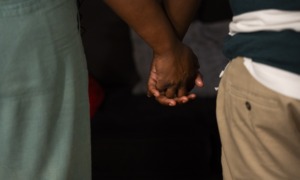Cedric Hope, a junior at the University of Maryland, College Park, says he manages to get by in his classes, but he knows the experience would be easier if he studied more than just five or six hours each week.
“I find that I have substantial grades,” says Hope, 20, a journalism major. “But I guess psychologically it’s more of a struggle [without studying more]. You feel more pressure in tests, even if you end up doing good or decent.”
Hope illustrates part of what a new working paper from the National Bureau of Economic Research (NBER) says is a downward trend in the number of hours that college students study each week that began in the 1960s and has been gradually declining ever since.
The study – titled The Falling Time Cost of College: Evidence from Half a Century of Time Use Data – found that whereas students in the 1960s studied a little more than 24 hours a week, nowadays students are studying only about 13 hours a week. The paper’s authors say the drop in hours spent studying could signal either a “declining production of human capital,” or a “dramatic” shift in how human capital is being produced on college campuses throughout the United States. (The full paper is available from NBER for $5).
The researchers – economics professors Philip S. Babcock of the University of California, Santa Barbara, and Mindy Marks of the University of California, Riverside – found that the downward trend in studying cut across all majors, types of colleges and levels of parental education.
“No group appears to have bucked the trend,” the paper states. “Study times declined overall … for every subgroup.”
The paper, which notes how college students’ study habits haven’t been researched much, draws no strong conclusions. But other experts say and other research shows that the culprits behind this trend can range from the increasing amount of time that students spend at work, to their increased reliance and time spent using technology and social media, to just plain lack of effort or self-discipline.
Going through the motions
“I would suspect that the study reflects the current study habits of university students,” says Robert Kizlik, a retired high school and college instructor who now operates a website that offers advice on, among other things, effective study skills for students.
“Students in high school and college seemingly are content with going through the motions of studying, or engaging in the illusion of studying without actually learning anything,” Kizlik says.
In order to reverse the decline in study time among college students, students need to learn three things, says Joe Landsberger, who also runs a website that offers study guides and strategies for students.
“One is time management,” Landsberger said. “The second would be prioritization. The third would be self-discipline.
Considering the results of new research on the amount of time college students now spending working, the advice seems all the more crucial.
Hope, for instance, works 15 hours per week as an after-school program counselor at an elementary school – work that he says can be exhaustive.
According to the research, college students in 1992 worked an average of 12.4 hours a week, compared to their counterparts from 1972, who worked an average of 9.5 hours per week.
Hope says his job doesn’t really prevent him from studying more, because he has his evenings free. What takes a fair amount of time that could be put to better use is social media, such as Facebook.
Hope was part of recent study titled A Day Without Media – conducted by the International Center for Media & the Public Agenda (ICMPA) – that concluded that for today’s college students, media and technology are basically like drugs.
The biggest distractions
“Students use literal terms of addiction to characterize their dependence on media,” researchers for the study found after conducting an experiment in which Hope and his peers at the Phillip Merrill College of Journalism, University of Maryland, College Park, were asked to try going 24 hours unplugged – a feat that many of the students admitted they could not bring themselves to do.
The ICMPA study also found that:
- College students 18 to 21 are constantly texting and on Facebook—with calling and email distant seconds as ways of staying in touch, especially with friends.
- Students could live without their TVs and the newspaper, but they can’t survive without their iPods.
Landsberger says there are times when youths should simply turn off their gadgets.
“When you’re studying, you just have to turn off the cell phone and the handheld devices,” Landsberger saiys. “You have to pay attention to what you’re doing.”
Hope says unplugging would “definitely help,” but there are reasons to keep the Internet, video games and the like at the ready.
“Sometimes when I’m really doing work, I find it healthy that for even just a minute or two, I can take my mind off my homework so that it goes by a lot faster and smoother,” Hope says. “It’s less stressful for me that way.”
Jamaal Abdul-Alim covers College & Careers through a grant from the Bill & Melinda Gates Foundation. He can be reached at Jamaal@youthtoday.org































